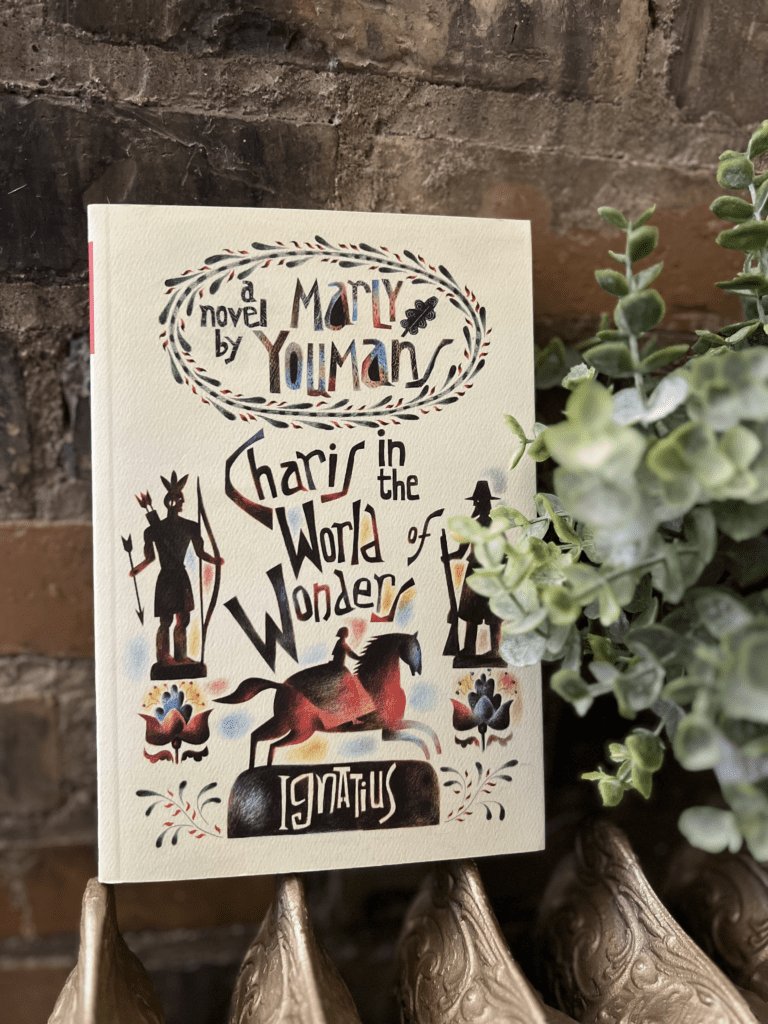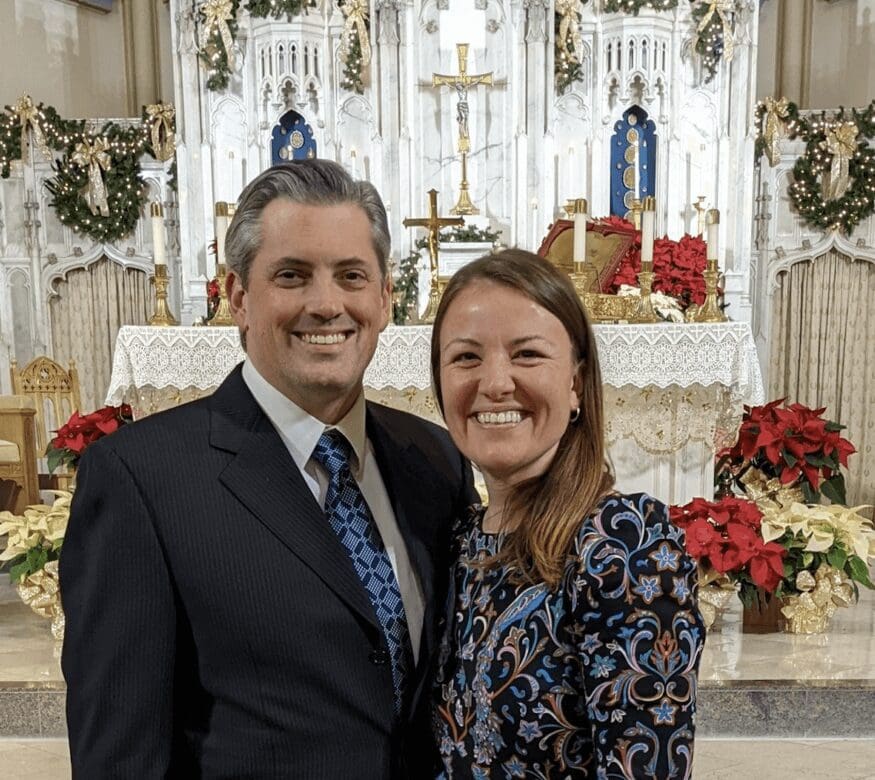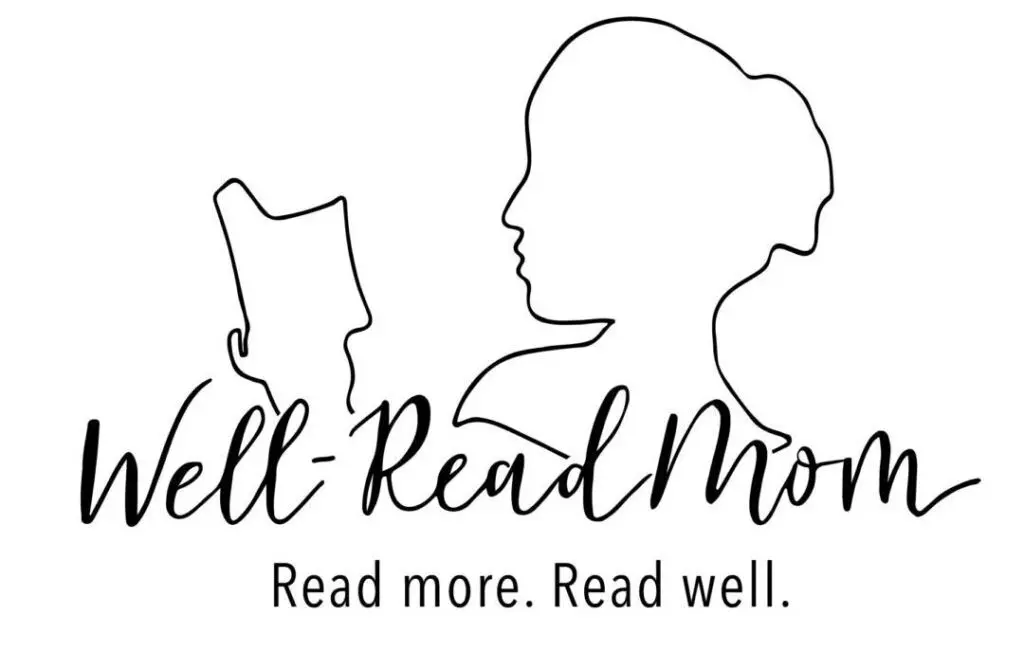Seeking Wonder in Charis in the World of Wonders
Written by Nicki Johnston
When my eleven-year-old son and I met for our quarterly book club this summer, we discussed how books pose questions. Our book, Forty Acres and Maybe a Mule (the Family Supplement selection for the month we read The Autobiography of Miss Jane Pittman), asked us to consider: What is true freedom? What is family? These beautiful questions led us to a rich discussion much deeper than just the book’s characters or plot.
Sometimes, the questions books ask are obvious; other times, they are more subtle. Often, it is only when I’ve reached the end of the book that I recognize the deeper aspects of it. When I read, I use book darts (thin metal line markers) I place throughout the book anytime something strikes me. In theory, this practice serves the same purpose as underlining. However, it is much better. You can easily turn to a page on which you’ve marked, and you are forced to return and retrieve them.
I prepare for my Well-Read Mom meetings with these book darts, and what reveals itself is always a surprise. There are themes and questions I missed upon my first read, and I benefit from rereading the best parts. I appreciate the book in a new way, which is what happened with Charis in the World of Wonders.
When I first read the book, I enjoyed it well enough. Yet, my appreciation for the book grew when I took the time to reread and note my favorite parts. I saw all of the references to light, dark, and shadow. Each time the word “wonder” was used, I marked it down and began recognizing its significance (given the novel’s title). I realized Charis’s understanding changed as the novel progressed. The question that kept calling me as I revisited the marked passages was very important: What does it mean to be “a created being completely alive”?
Charis offers her answer to this question in this beautiful passage from pages 313-314:
“God fashioned the waters and their salt, changeable secrets out of joy and pleasure, and likewise he formed me, and all he longed for me in my life was that I be alive, all the way alive and whole like the sea doing what I was intended to do, being all of what I was meant to be—a woman rejoicing in creation and sensing another, better world next to our own, a mother and wife, a wielder of the needle, an apprentice to a goldsmith, and a candle on fire.”
This question about being “all the way alive” is something I have considered for myself and now, for my children. In deciding to homeschool, my husband and I had many conversations about the purpose and end of education. We chose a philosophy of education that aims “to give a full life,” initiating “an immense number of interests” because “life should be all living, and not merely a tedious passing of time” (Charlotte Mason, School Education, p. 170).
Charis in the World of Wonders frequently mentions these interests that I hope to initiate for my children. Encountering references to poetry, ancient languages, handicrafts, and nature study—all integral parts of our homeschool—delighted me.

When Charis goes through the wilderness and finds herself in a home again, she wants to “weep for the beauty of made, human things” (74). She recites poetry, pores “over a commonplace book made by some Saltonstall ancestor, its pages decorated with vivid drawings in colored ink and crowded with poems and passages” (83), and is given a blank book by Jotham so that she can write her own story—both for future generations to know of her courage and so that she can “know what and who [she was] when [she] went into the wilderness, and how [she was] changed afterward. To put [her] days in order” (119).
Charis’s skill as a seamstress and her admiration for Jotham’s craft, “to smooth raw metal into objects of usefulness and beauty” (108), can inspire us to exercise our gift of being made in the image of the Creator to create something ourselves, to be “caught by beauty, and… aspire to make marvels” (115). We can learn from Charis’s regret of “paying so little attention to the names of hawks and songbirds and sea fowl” when she laments that “their myriad lines of flight made only a nameless tangle in memory” (64) and attends to nature, taking time to learn the names of the birds, trees and wildflowers we encounter right outside our door.
It would be our mistake to consider these practices quaint or outdated simply because they possess age. Instead, we consider them human endeavors handed on to us to partake in as an aid to live more fully.
In seeking comfort after her sufferings as a young woman, Charis seeks ultimately to know what God wants of her. We can learn from the clarity she receives at the end of the book. We may not all be wives or mothers, and very few of us can wield a needle with the skill of Charis, but we are all meant to be women “rejoicing in creation and sensing another, better world next to our own.” This action, after all, is what it means to be a seeker.

Nicki Johnston
Nicki Johnston is a home educator, a CGS catechist, an avid reader and an amateur naturalist. She lives in Kansas with her husband, Graham, and their four sons.
About Well-Read Mom
In Well-Read Mom, women read more and read well. Our hope is to deepen the awareness of meaning hidden in each woman’s daily life, elevate the cultural conversation, and revitalize reading literature from books. If you would like to have us help you select worthy reading material, we invite you to join and read along with us. We are better together! For information on how to start or join a Well-Read Mom group visit our website wellreadmom.com

